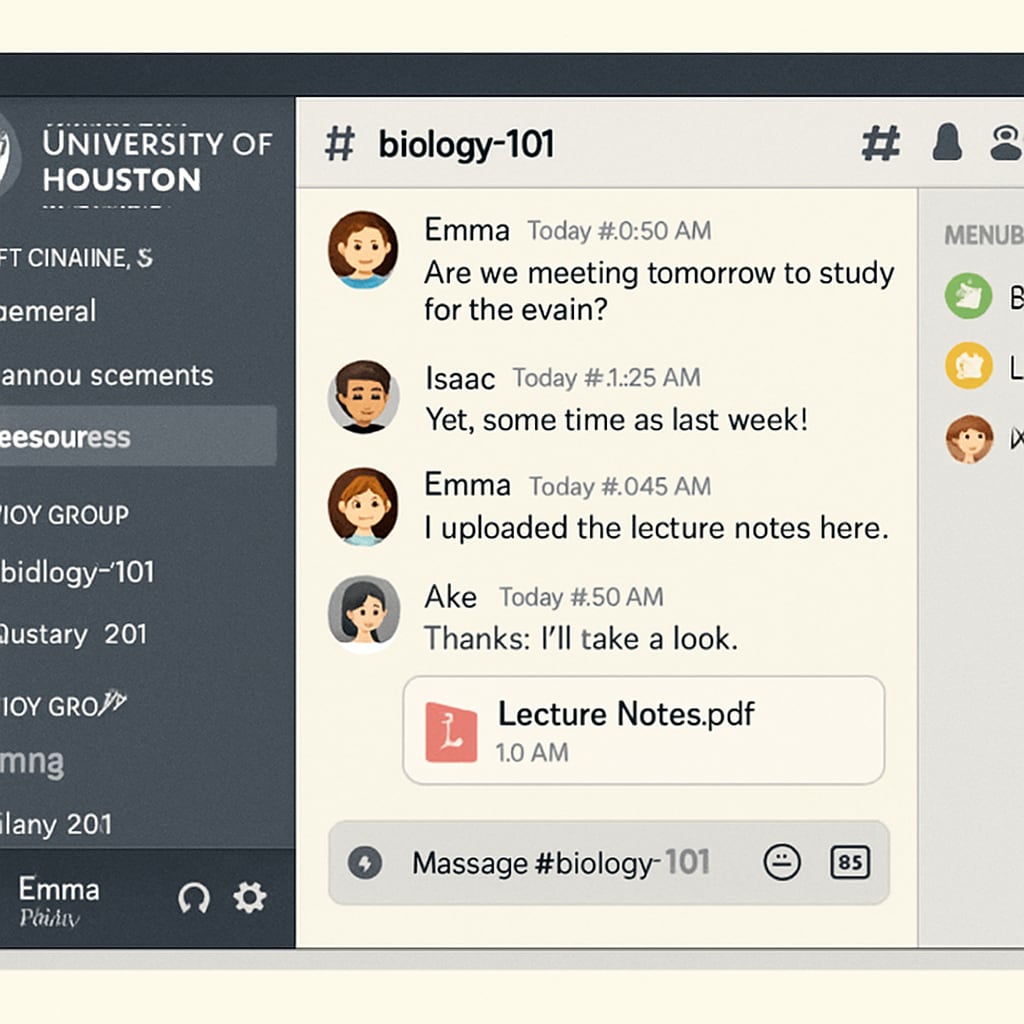For students at the University of Houston, accessing the right study groups and leveraging platforms like Discord can make all the difference in academic performance. These communities, both in-person and online, provide a space for collaboration, problem-solving, and mutual support. But how do you find these resources, and what makes them so impactful? This article explores the significance of study communities at the University of Houston, their evolution into digital spaces, and practical advice for joining them.
The Value of Study Groups at the University of Houston
Study groups have long been a staple of student success. At the University of Houston, these communities offer more than just academic support—they create an environment where students can share diverse perspectives, clarify complex topics, and prepare collectively for exams. Studies have shown that collaborative learning not only improves academic outcomes but also fosters a sense of belonging among students. This is particularly important in a diverse university setting like Houston, where students come from various cultural and academic backgrounds.
For example, many students in STEM fields form small groups to tackle challenging coursework. These groups often grow into close-knit networks where members share resources like lecture notes, practice problems, and study guides. By pooling their knowledge, students can approach complex subjects with greater confidence and clarity.

From Libraries to Discord: The Evolution of Study Communities
Traditionally, study groups would meet in libraries, coffee shops, or classrooms. However, the rise of digital platforms like Discord has transformed how students connect and collaborate. Discord, initially popular among gamers, has become a hub for academic communities. Its features—such as voice channels, text discussions, and file sharing—make it an ideal platform for virtual study groups.
At the University of Houston, several student organizations and academic departments now use Discord to facilitate communication. For instance, engineering students often use dedicated servers to discuss projects, share coding tips, and even host mock interviews. Similarly, business students create channels for each course, enabling real-time discussions about assignments and exams.
The shift to digital spaces has also made study groups more accessible. Students no longer need to coordinate physical meeting times or locations. Instead, they can log in from anywhere, making it easier for those with busy schedules or off-campus commitments to stay engaged.

How to Find and Join Study Groups at the University of Houston
Finding the right study group or online community at the University of Houston doesn’t have to be overwhelming. Here are some practical steps:
- Ask Your Professors: Many professors encourage group work and may know of existing study groups. Don’t hesitate to ask during office hours or after class.
- Check Student Organizations: The university hosts a variety of student organizations, many of which focus on specific majors or interests. These groups often organize study sessions.
- Explore Discord Servers: Search for University of Houston-specific Discord servers. These are often promoted on social media or through department newsletters.
- Use University Resources: The university’s academic support center may also help you connect with peers in your courses or recommend tutoring services.
In addition, take the initiative to form your own study group. Start by reaching out to classmates and setting up a shared space, whether it’s a physical location on campus or a virtual server on Discord.
Why These Communities Matter
The importance of study groups and digital platforms like Discord extends beyond academic success. They help students develop essential skills such as teamwork, communication, and time management. Moreover, these communities provide emotional support during stressful times, creating a sense of solidarity among participants.
For international students at the University of Houston, study groups can also serve as a bridge to better understand American academic culture. They create opportunities to practice language skills, ask questions about assignments, and build friendships across cultural boundaries.
Ultimately, these communities exemplify the collaborative spirit of the University of Houston. By leveraging the resources available, students can enhance their learning experience and achieve greater success.
Whether you prefer traditional study groups or modern digital platforms like Discord, the opportunities to connect and grow at the University of Houston are endless. Take the first step today and discover the invisible pillars of your academic journey.
Readability guidance: Focused on short paragraphs, clear subheadings, and actionable advice. The article uses accessible language while incorporating academic terms with brief explanations. Transition words ensure smooth flow, and lists break down complex ideas.


